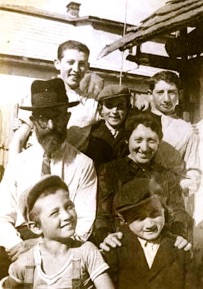
Music from the Carpathian Bow
As to politics in Czechoslovakia: The majority party voted into office on every occasion in the life of the republic was the Social Democrat party. They therefore controlled the government and its policies. The standard of human rights and justice were quite high. All citizens including minorities enjoyed absolute equality, not just before the law but in fact in day to day life, in people to people relations. True democracy worked, not just because it was framed into the constitution, but because the Czech people and leadership made it work. Bigotry, discrimination on the part of the Czechs was unheard of. There were fascists and racists among the Ruthenians, Slovaks and especially the Germans but not among the Czechs.
Mortal enemies, the Germans had brutally oppressed the Czechs, holding them captive for six centuries until the year 1918 and yet the sizable German minority in the country (20% of the population) enjoyed all rights and privileges as all citizens in the republic. There were Germans filling government jobs. They also served in the Czech army and some attained high rank in the officer corps. Of course, after Hitler came into power in Germany and manifested his irredentist ambitions (demanding the incorporation of the region the ethnic Germans lived in into Germany) they engaged in subversive activities, thereby undermining the security of the country.
There was practically no corruption on the part of the Czech politicians and officials. They were simply impossible to bribe. I have had occasion to meet people of many different nations and races, but none as decent, tolerant and persons of high moral standards and democratic ideals as the Czechs. In my humble opinion this is a people of superior cultural, intellectual and ethical quality.
The name of the first president was Thomas Garique Masaryk, who founded the republic. This was a great statesman, a man of unimpeachable character, an intellectual of moral rectitude. The awe we held him in verged on apotheosis. He was held in high esteem not just by the people in the country but by the world leaders of all democracies. Although his was a
humble background (his father was a coachman for a nobleman), he nevertheless managed to become a scholar with a Ph.D. degree in philosophy. His lofty humanitarian ideals were readily adopted by the Czech people. According to the constitution a president could be elected only twice in succession, but as the founder of the republic he was exempt from this rule. It was a sad day when he passed away in 1936. We sustained a great loss. He was succeeded to the presidency by Edward Benesh who also proved to be a man of probity, following in Masaryk's footsteps.
Education: All schools, kindergarten to university, were sponsored by the government and supported by tax money. There was no tuition and curriculum was uniform across the land. Any sizeable ethnic minority was provided its own school with instruction in its own language, if requested .About 38 miles from us, in Mukatchevo, there was a Hebrew gymnasium (high school) also sponsored by the government. Eight years of schooling was mandatory. In Verecky we had a Czech elementary and a Ruthenian elementary and junior high.
Culture: Although in Bohemia, Moravia, Silesia, Slovakia as well as in some of the larger cities of our region there was a great deal of cultural activity, there was very little in Verecky and surrounding area. And yet, we weren't totally isolated or completely backward. Literature was readily available. Reading and discussing of books was a popular pastime. TV of course had not yet been invented. There were very few radios (battery operated) but quite a few hand cranked record players. As to musical entertainment, we provided most of it for ourselves by getting together on weekends and singing. From time to time we were visited by musical ensembles and choral groups from the larger cities. Once in a while we were treated to stage plays or dance performances by touring theatrical troupes. The local Jewish youths presented stage plays twice each year, drama on Chanukah (Festival of Lights) and comedy on Purim (Festival of Esther). Movie theaters we didn't have as there was no electricity, although we did get to see motion pictures at times, brought in from out of town and powered by generators.
In industry and technology Czechoslovakia (except for our province) was well advanced. On a par with other industrialized countries such as Germany and Great Britain although on a smaller scale due to its smaller size. In the field of heavy industry there were two firms that manufactured cars and trucks for domestic use as well as for export. There were coal mines, extensive steel and iron works and a heavy armament industry manufacturing such military hardware as airplanes, tanks and artillery pieces, some of which were exported. As to light industry, there were two large shoe manufacturing companies, and many textile manufacturers. Czech linen, crystal, glass and beer were and still are highly valued the world over. As to Sub-Carpathian Ruthenia, the only industries were agriculture, lumber and tourism.

Boris (top left) with his parents and brothers

Memoirs
Boris Segelstein